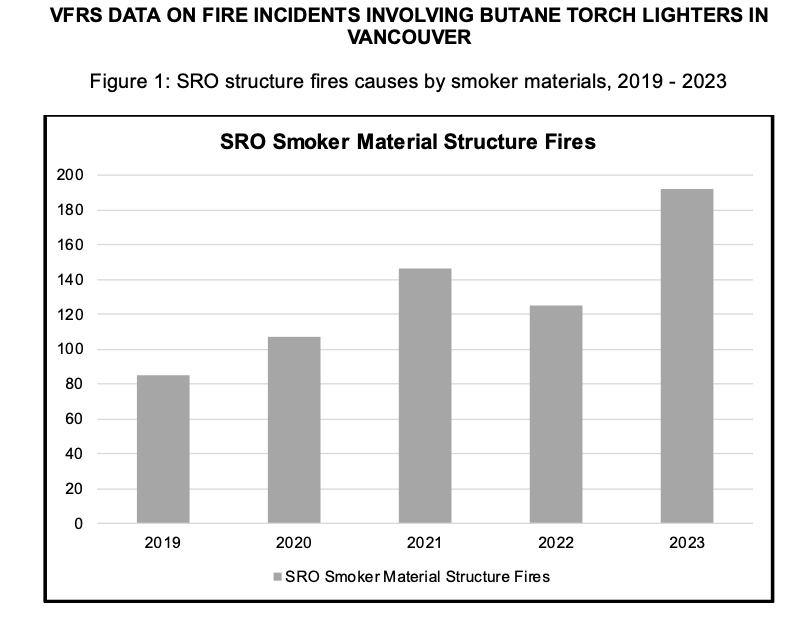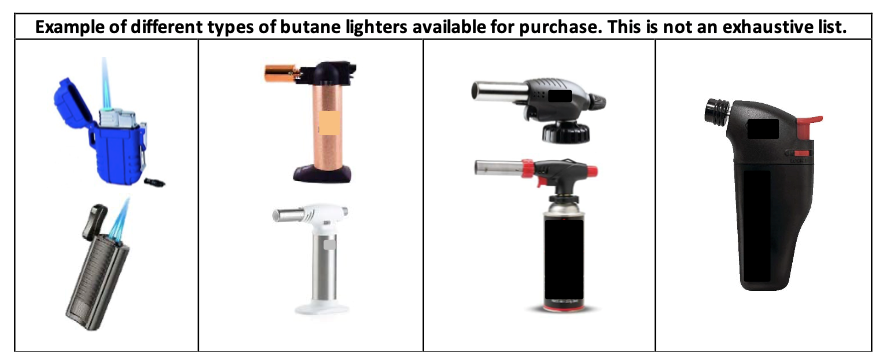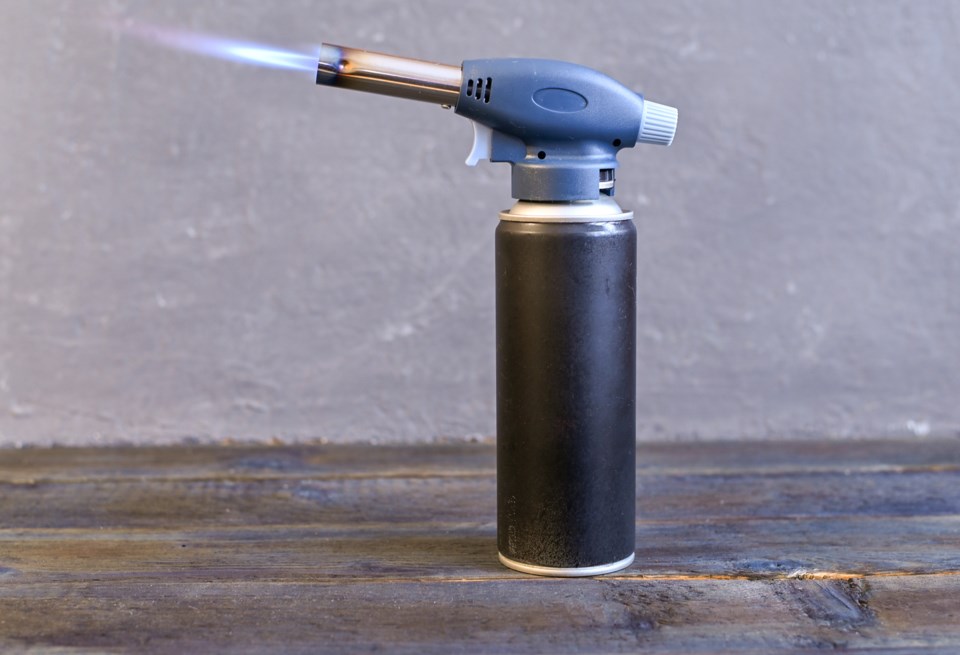City council is being asked to prohibit the sale of continuous flame butane lighters after Vancouver Fire and Rescue Services reported an increase in fires caused by “smoking materials,” particularly in the downtown core.
A report from the department’s investigations division that goes before council May 8 said there were 3,128 fires that occurred over the past 16 months where a lockable lighter or torch may have been the igniting source.
The lighters, or torches, are common tools used by people who regularly smoke opioids or stimulants and does not require the user to manually produce a continuous flame — a concern if someone overdoses.
“It is clear that torch-style lighters play a major role in the contribution to fire loss and injury in the City of Vancouver,” said assistant fire captain Mike Heslop in his report.
“The fire investigation division can support that the careless use of an open flame has resulted in several serious injuries and deaths. The careless use of open flame has also resulted in significant dollar loss and damage to private and commercial property.”

Homeless man on fire
Heslop outlined five cases where lockable lighters were found at the scene of fires, including one where witnesses saw a man on fire running out of a homeless shelter. In another case, a 15-year-old boy suffered burns to more than 50 per cent of his body.
Data provided by Heslop included:
• 2,130 or 68 per cent of the 3,128 fires in 16 months occurred within the downtown area, including the Downtown Eastside.
• 356 of the fires occurred in a single-occupancy-room (SRO) building.
• There were 79 fire-related injuries and six fire deaths.
• Total dollar loss associated with the fires was approximately $16.7 million.
• Almost 400 people were displaced from their homes and required assistance from the city’s emergency support services.

'Flamethrower stream'
Heslop estimated there are 20 retail stores in the Downtown Eastside that sell a variety of lighters and torches. In some areas, he said, several retailers are located on one block and offer many styles of torches, both locking and non-locking.
They range from four dollars to $40, with retailers telling Heslop they sell anywhere from three to 10 lighters per day, and five to 10 refillable butane canisters per day.
“It was not clear if there was one particular model that was more popular over another, although retailers did say they sold more of the cheaper models,” he said, adding that approximately 17 per cent of the torches he sampled failed to operate safely.
“One torch sent a flamethrower stream about two feet as the butane was not vaporizing. This could have caused significant injury to the user.”
Risk of increase in injection drug use
Heslop’s report was attached to a city staff report that included comments from Vancouver Coastal Health (VCH) and a letter from the Vancouver Area Network of Drug Users (VANDU).
Both organizations noted the rise in people preferring to smoke drugs over injecting them — a trend highlighted by the BC Coroners Service, showing an increase in overdose deaths connected to smoking that began in 2016.
The comments from VCH were in bullet points:
• Risk of increase in injection drug use if there are regulations on butane torches.
• A butane torch is necessary to produce the level of heat required to vaporize substances.
• Important that regulations happen in stages, “major concern about negative impacts if it happens too big, too soon.”
• Holding the ignition can be difficult. Lock is an aid to the process.
• Need for more outdoor and sanctioned indoor inhalation booths and services.
• Education needed around safer smoking with butane torches. “There’s a lot of people who have never got that education when making the transition to smoking.”
'Increased police interactions'
VANDU said in its letter that many of its members use lockable lighters or know people who use them.
“There was collective concern that a ban could result in police searching or seizing these lighters and we will not support a ban resulting in increased police interactions,” VANDU said.
“The group was particularly concerned about unhoused residents — that a ban would give police even more excuse to search tents and steal people’s possessions.”
VANDU said they were certain that people would find a way to lock lighters, even if a ban was in place.
“Members suggested making available lighters that automatically turn off when tilted,” VANDU said. “Membership also strongly urged providing non-lockable torch lighters available for free as harm reduction supplies which would help reduce the use of lockable lighters.”
City staff also heard from the restaurant and food service industry, which suggested a “detrimental effect” on business, noting the torches were necessary for some restaurants to operate.
“Risk of decrease in productivity,” the report said. “Productivity goes down, labour goes up. The even distribution of the flame with a continuous locking feature ensures quality control and consistency of product. Concerns for more acquired injuries.”
No provincial, federal regulation
Plumbing, heating and refrigeration businesses said plumbers typically used acetylene or MAPP gas, so the impact would be minimal if butane was not sold in Vancouver.
The Retail Council of Canada and distributors said professionals will have to drive further to get the product and that Vancouver businesses will be displaced.
At the same time, a ban on sales of lockable butane lighters in Vancouver would likely have little impact on wholesalers and distributors, the report said.
The City of Vancouver does not have the authority to prohibit the use, possession or seizure of butane lighters. But it does have authority through the licence bylaw to prohibit the sale of the lighters.
“While it would be preferable to manage the hazard posed by continuous flame butane lighters through provincial or federal regulation, the serious public safety risks associated with the use of these devices in residential settings warrants consideration of a direct response by the City of Vancouver pending any national measures,” the report said.
If council agrees with staff to ban sales, the bylaw would be effective as of June 28, 2024.





